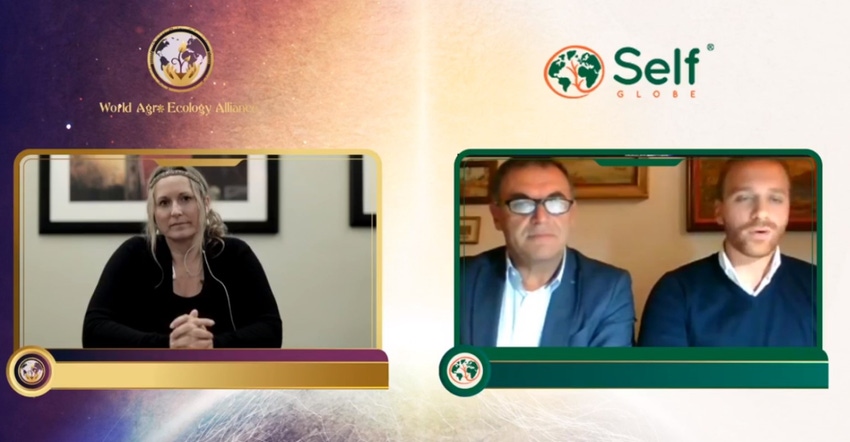World AgroEcology Alliance focuses on providing farmers ways to profit through more localized production.

A new nonprofit called the World AgroEcology Alliance (WAEA), announced its formation in Washington, D.C. to bring together like-minded leaders and advocates from around the world to drive the necessary change and movement needed in policy, production practices, food processing, consumer habits, and food accessibility and affordability in a manner that will revitalize the global food system. Founding members include Palindromes Inc., Self Globe, and U.S. Farms.
The alliance will serve as a mechanism to bring the developed Western world into the agroecological movement. It will deploy a platform underpinned by seven principles 1) fairness for farmers; 2) localization & diversification; 3) wellness for all; 4) demonstrating; 5) socially just; 6) balanced; and 7) a One Earth mentality.
Karla Klingner, chief executive officer of Palindromes, Inc., said a main driver behind the launch of the alliance starts with farmers receiving a fair and equitable living and offering consumers the end product they desire. “Our farmers are carrying the greatest risk and receiving the littlest reward,” she said during a virtual live conference on Friday afternoon.
“Currently, U.S. farmers are forced to rely heavily upon a yield-centric commoditized agri-industry-created model with market controls that tie directly to crop genetics, the suppression of unbiased sound science and decades of inaccurate propaganda,” said Klingner. “Production is not financially viable without government policies that provide ongoing subsidies and bailouts and is not environmentally sustainable. The farmer cannot continue to produce by borrowing on net-worth while the hands-in-the middle obtain record-breaking profits.
“This bold shake-up of our modern-day industry being proposed cannot be achieved alone. We believe that we can in fact ‘grow, sustain and nourish together’ and the alliance is a necessary tool to accomplish just that,” she added.
One of the partners of the alliance is Self Globe, which Klingner shared Palindromes has partnered with to open smaller, localized meat processing facilities. They have embarked on a very aggressive agenda to roll out in multiple regions a facility for pork, beef, poultry and sheep/lamb processing.
For pork the facility would process 150 head per day and the beef 50 head per day, which represents a drastic difference from the packing industry but larger than the localized meat locker.
The model works with the farmer to reserve shackle space and then send that end product directly to consumers, resulting in a better ability for farmers to remain profitable through premiums and consumers benefit with a nice quality product at a better price point.
Klingner shared the alliance allows for a “seal of authenticity” and outlines that chain of custody to follow and track that animal through its entire lifecycle. (For a full interview with Klingner on these processing facilities, click here.)
Russ Kremer, a pork farmer from Frankenstein, Mo., has been part of the efforts to launch the pork processing facility. “Farmers want to get off the commodity treadmill,” he said. That treadmill has signaled for them to get larger to expand and have higher yields by buying more commercial inputs but that has left them with razor-thin margins.
This new focus focuses on quality and providing something the consumer actually wants. “Relationships are the last frontier family farmers can hang their hat on,” he said.
Klingner continued, “Feeding the world should not be this hard. With approximately one-third of our world food supply wasted, the solution does not depend on producing more. Agroecology is what will feed the world by altering the ways in which we produce, access and consume food.”
The organization expects to establish a land fund, a platform for micro lending, a support to represent U.S. farmers in legal and policy matters and micro processing capabilities.
About the Author(s)
You May Also Like



.png?width=300&auto=webp&quality=80&disable=upscale)

